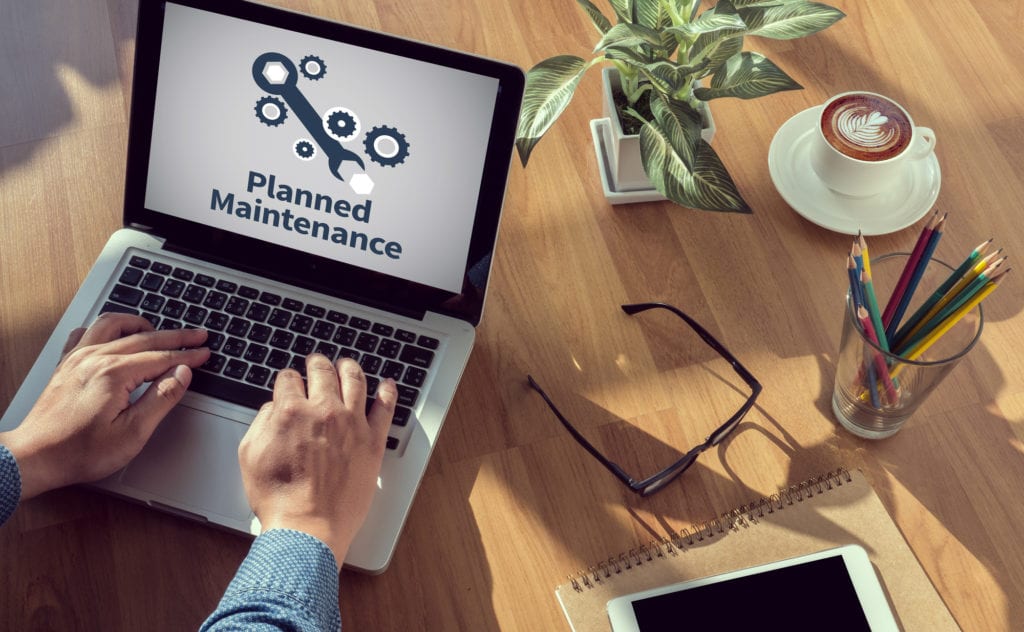A great website is more than just a nice space to advertise your products and services, it’s also a place for you to establish your online credibility and reputation. Many business owners, however, make the mistake of creating a website and allowing it to just sit for years, hoping that it will load quickly, not crash, draw in more customers.
Unfortunately, this strategy will probably not work in terms of keeping your website running smoothly & attracting new customers. Without a proper website maintenance plan, you could be putting your website and business at risk.
So the question is, how can a website maintenance plan help you to gain peace-of-mind, boost your business and increase your traffic?
In the article we are going to help you discover exactly how important your website infrastructure is. Keep reading to learn more.
What is a Website Maintenance Plan?
Just as the name suggests, a website maintenance plan is an ongoing program that supports, updates, and maintains your website from either a technical standpoint, a content/design standpoint, or both.
One of the biggest myths in the website development world is that you can just create a website, write a blog once in a while, and let it be. While this may have been true back in the early 2000s, it is far from being the case now.

Benefits Of a Website Maintenance Plan
Just like a car, websites also need attention every once in a while. If you purchase a car and keep driving it for years, but do not maintain it (give it an oil change or a tune-up,) it will eventually break down to the point where there is irreversible damage.
It is a similar situation with your website – it needs to keep up with the latest changes in technology, security, SEO algorithms, mobile optimization, design, marketing, and more.
Security Updates
According to research, there are over 30,000 websites hacked every single day. This also means that the less maintained your website is, the more chances you have of your website becoming part of that statistic.
Some of the most commonly overlooked WordPress maintenance areas include:
- Failed or outdated plug-ins
- Outdated themes
- Outdated scripting tools (jQuery, PHP)
- Outdated WordPress Content Management System core software
All of these areas are loopholes that hackers look for as an easy target to hack websites. This reason alone is worth the investment to hire a professional for a website maintenance plan.
When it comes to WordPress, they make it very easy for you to update your theme, core WordPress software and plugins. However, if you are not a website professional, sometimes an update (to a plugin, theme or core WordPress software) can conflict with another plugin or piece of code on your website.
If that happens, it can cause issues (and can sometimes cause your site to completely crash.) Unless you really understand your website’s infrastructure, you should let a web developer handle the security updates.
Decreased Bounce Rates
Have you ever visited a website and became so frustrated with either the website load time or confusing navigation, that you just left? This is called bouncing, and your bounce rates are a major determining factor for Google to know if you are a reputable website or not.
Essentially, if your website is either taking too long to load or if it is difficult to navigate, then your visitors will probably just leave your website.
This can signal Google that your website is either misleading or dysfunctional, which will put you behind on the search engine results page (SERP.) When it comes to a website maintenance plan, high bounce rates can be analyzed and acted upon.
User Experience (UX)
A website’s user experience (or how effectively a visitor is able to interact (in a meaningful way) with your website) is a major determining factor for how successful your website will become.
This can include the ability to effectively view a website on a mobile device or how well a visitor can understand your website navigation.
According to a recent survey, your website has only 50 milliseconds to make a good first impression, or else that visitor is going to look elsewhere. Good UX can help your website make that amazing first impression.
In today’s society, a website visitor’s mind is already busy enough, let alone needing the energy to figure out how to navigate a poorly designed website.

Typically, outdated plugins, lack of mobile access, or design failures are key elements which can create a poor user experience.
Creating a great user experience strategy is enough to boost your conversion rates as much as 400%. Maintaining your website at the most basic levels can help.
What Does a Website Maintenance Plan Include?
Now that you understand some of the key benefits of a website maintenance plan, it is essential to know everything that can be covered.
The Difficult Part
If you are a small business owner, your main energy should be to focus on your business and serving your customers – not to try and learn how to update your website. This is why it is important to leave the difficult part to the professionals so you can save your energy for converting customers and building your business.
Website maintenance plans come in many shapes and sizes. We have typically found there are 3 different areas that can be included in a website maintenance plan:
Technical / Security Updates
At a minimum, every single month, your WordPress theme, core software and plugins should be updated. This is critical because it keeps the technology up-to-date which helps to prevent malicious activity or possible hacking.
Before you perform any updates, you will want to make sure your website (including your database) is backed up and easily restorable.
Once you make the updates, you will want to run through and test your entire website to make sure the updates did not cause issues on the site.
If you find areas where there are issues, you can either restore the website from the backup you created, or you can try to troubleshoot the issue on your own (or with the help of your hosting provider.)
When our clients have a maintenance plan with us, we handle the hosting, backups, testing and updates. This takes the pressure off of our clients so they can focus on their business and not troubleshooting why a specific plugin update caused their site to go haywire.
Design and/or Content Updates
Keeping your site “fresh” is important. When we say “fresh,” we are really talking about the content and/or design.
Once you launch a new website, it’s pretty common that small business owners neglect the website and let it get “stale” (I’ve been guilty of this in the past.) It’s important that you update the content or design at least once per month.
This could include:
- Writing/Posting a New Blog Post
- If you are a service-based business, post a new portfolio piece
- If you are an ecommerce provider add a new product or sale item
- Change the messaging on your homepage
- Switch out imagery on any part of your website
- Post a new downloadable guide or checklist to build your email list
- Add a new section or layout to your website
- If you hired a new employee, add them to your “Team” section or page (if you have one)
- If you were featured in any news or media – post this to your blog or brag about it on your homepage
- Add new client testimonials
- Add an FAQ section or new questions in your FAQ section
- The possibilities are endless
You may not have the time as a small business owner to make updates to your website (most of the small business owners I know are extremely busy running their businesses) and if you fall into that category, a maintenance plan is a perfect solution to keep the content or website design fresh.
Search Engine Optimization (SEO)
SEO goes hand-in-hand with keeping your content fresh (mentioned above.) Google loves new content and when your site gets crawled by Google’s spiders, it will take note of new and changed content. This can help boost your SEO presence.
On average, Google updates their algorithm at least 3,234 times per year, your website needs to adjust to these changes to stay afloat and be recognized.
However, great SEO requires consistent effort and a website maintenance plan can help assist in these efforts. To keep up with your competition, your website needs to be constantly updated with the latest SEO trends.
Monthly SEO tasks can include:
- Blog/Article writing with keyword-rich content
- Guest posting on other relevant blogs which link back to your website
- Link building or creating links on other sites to help build a base of authority on your site.
- Running periodic technical audits which can include identifying and removing any roadblocks that Google is experiencing when trying to spider (or search) your site.
Learn More About a Website Maintenance Plan
A website maintenance plan is not just about updating your website, it is about keeping your website tuned-up and ahead of your competition. This allows you to focus on what you do best, which is your business, and letting us do the hard stuff for you.
Now that you know the benefits of a website maintenance plan, it is time to get started. To learn more about how this can work for you, feel free to schedule a strategy call with us.
